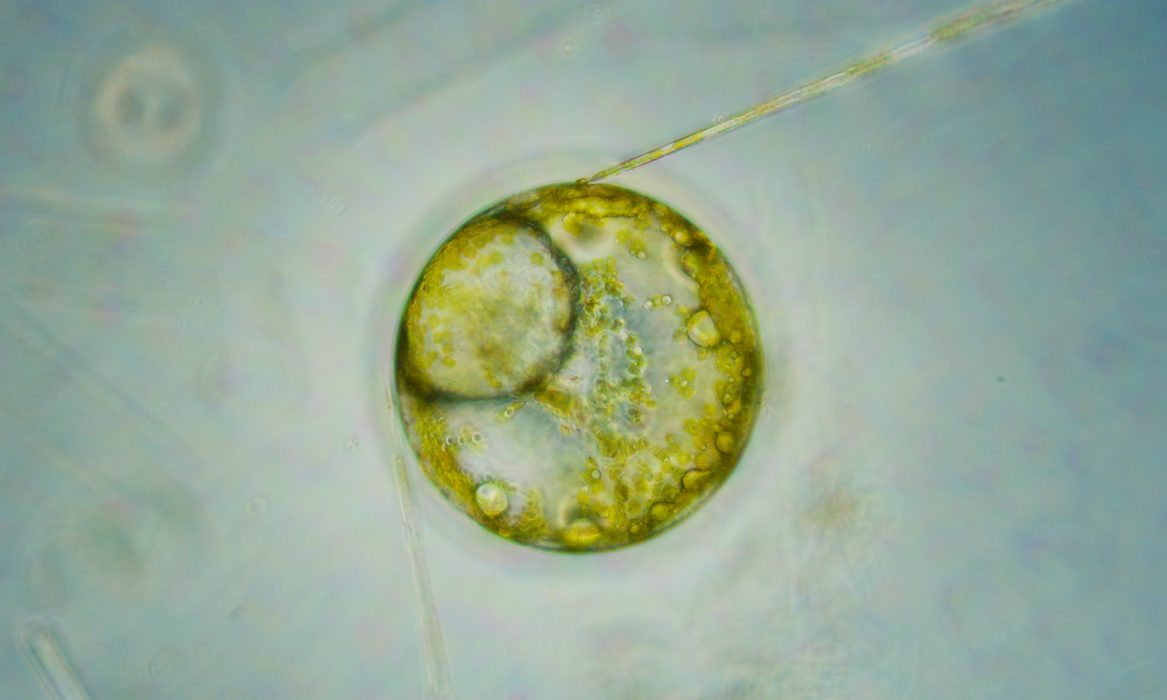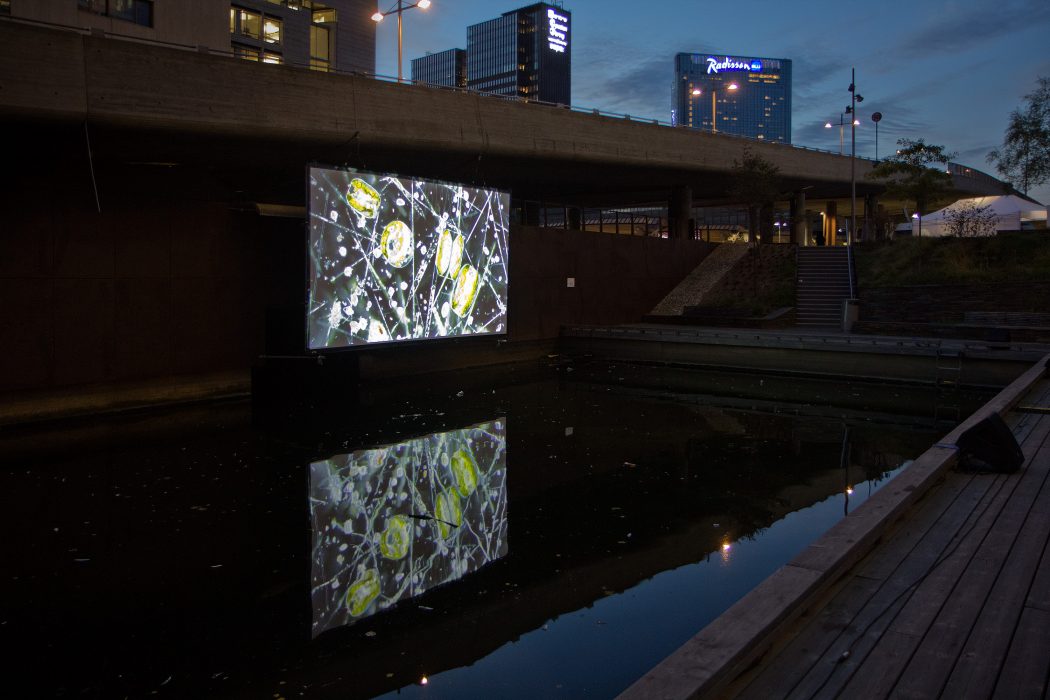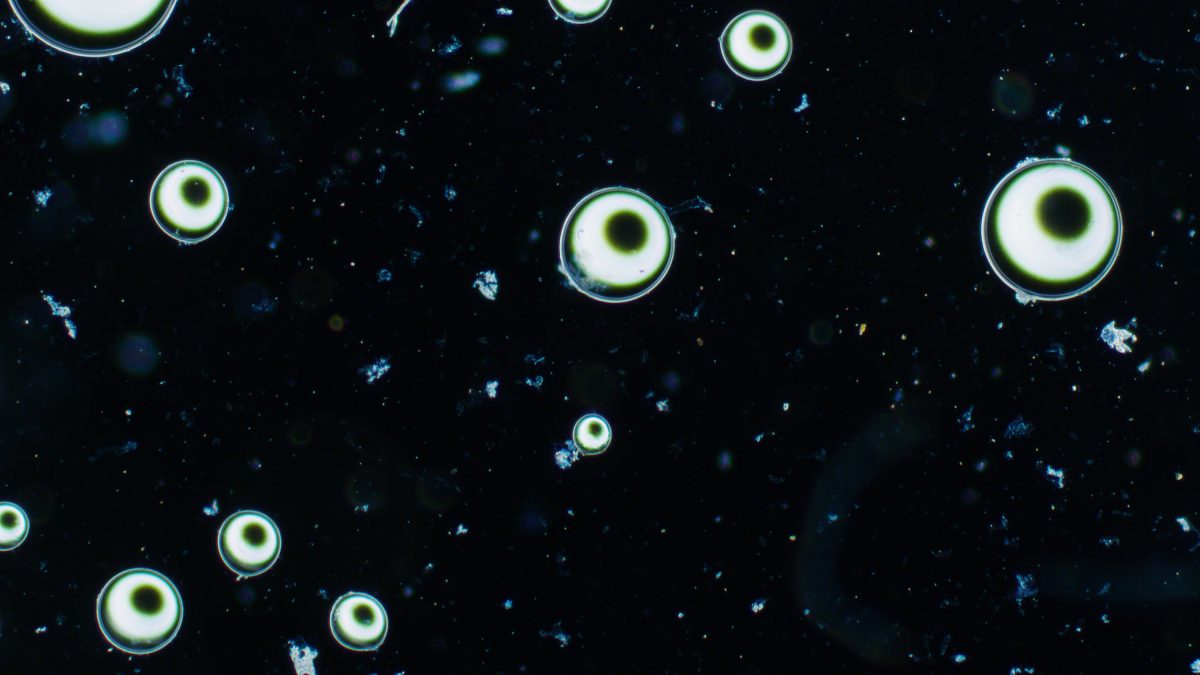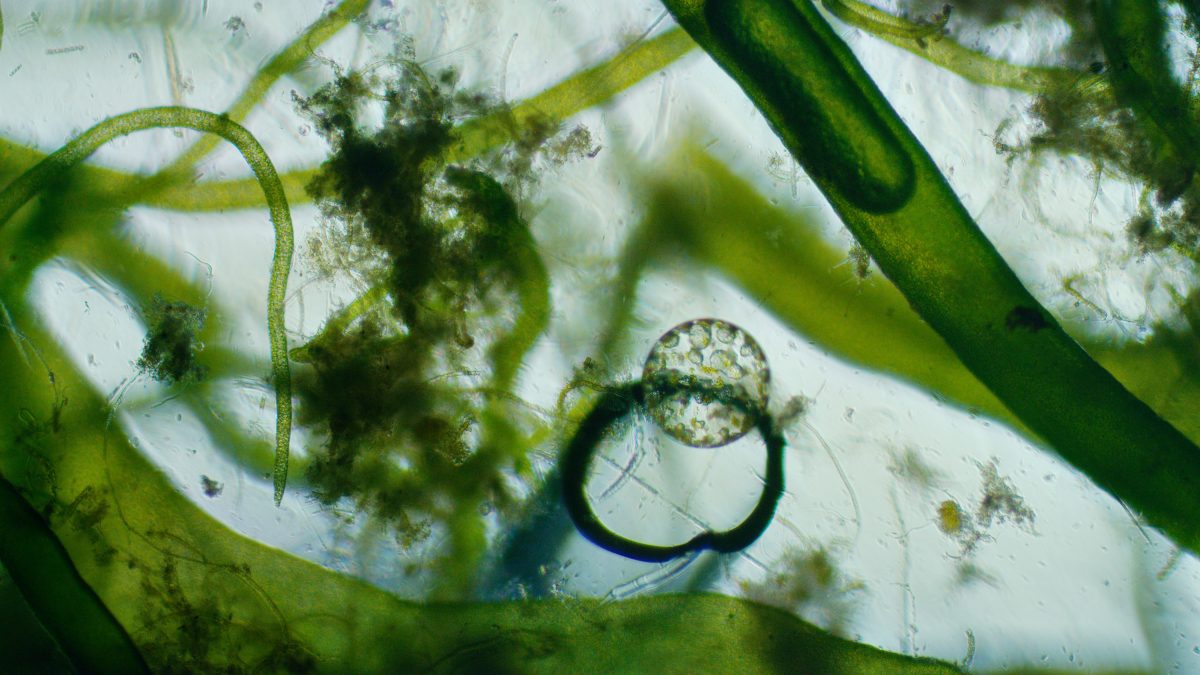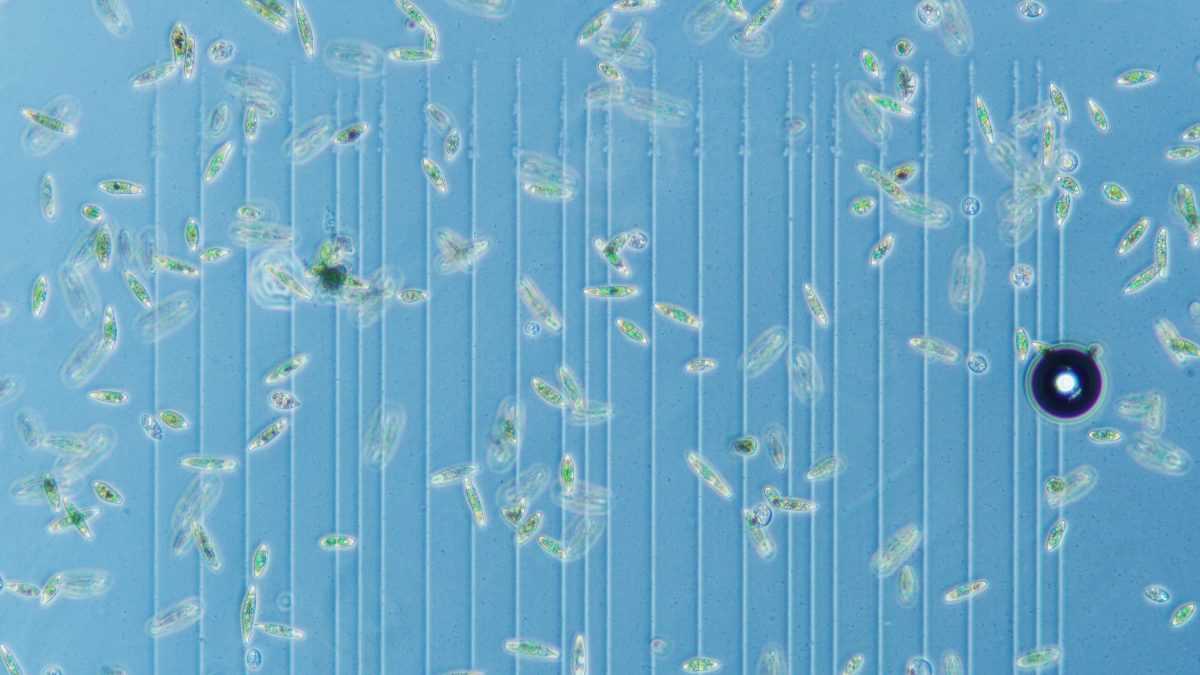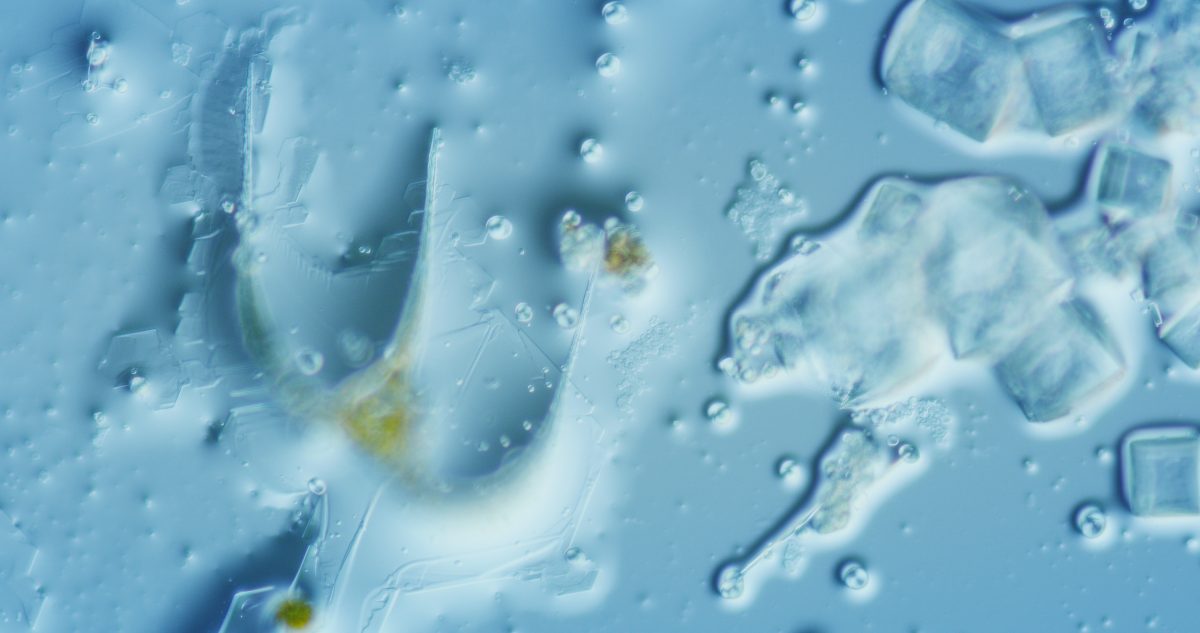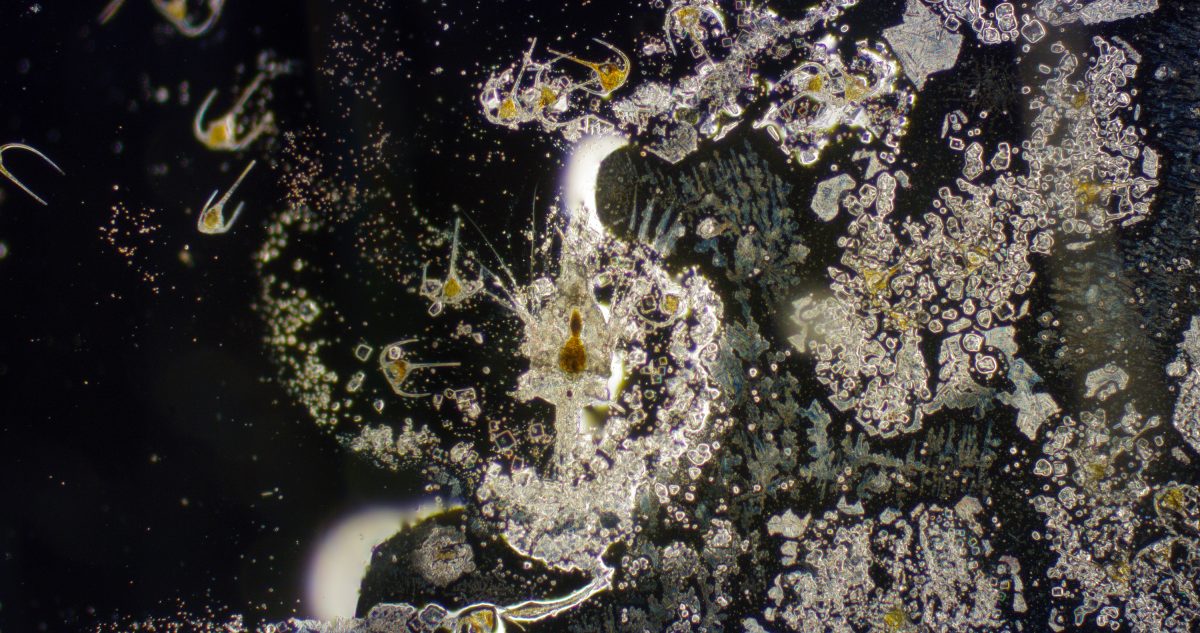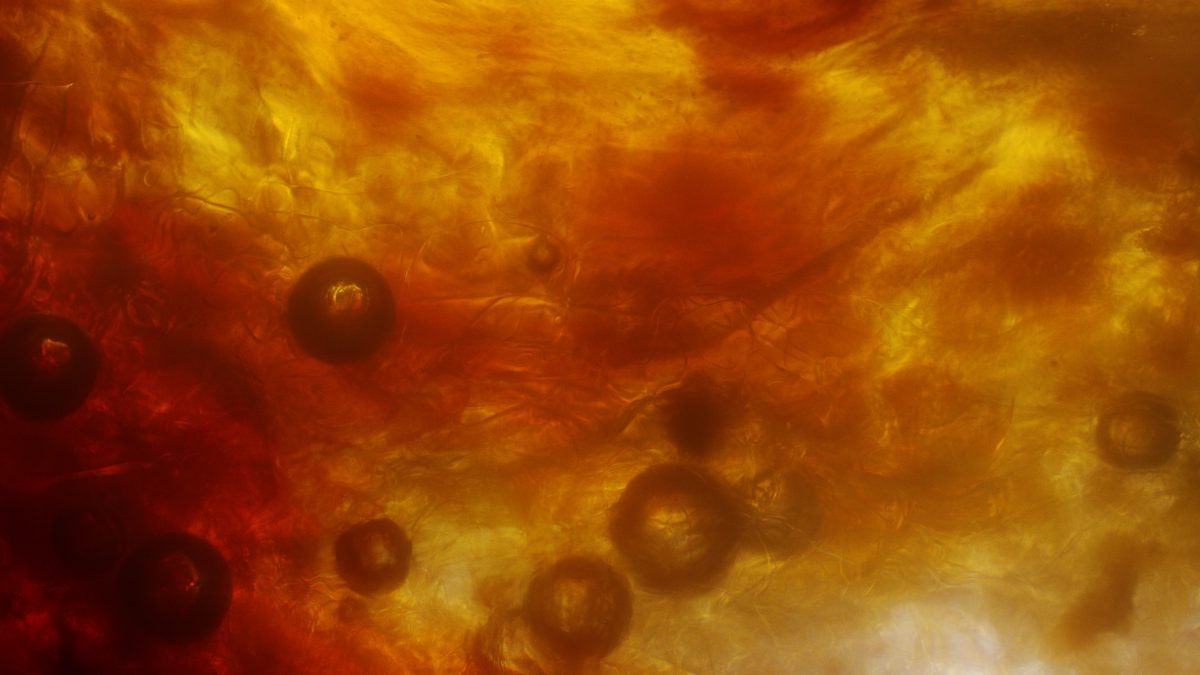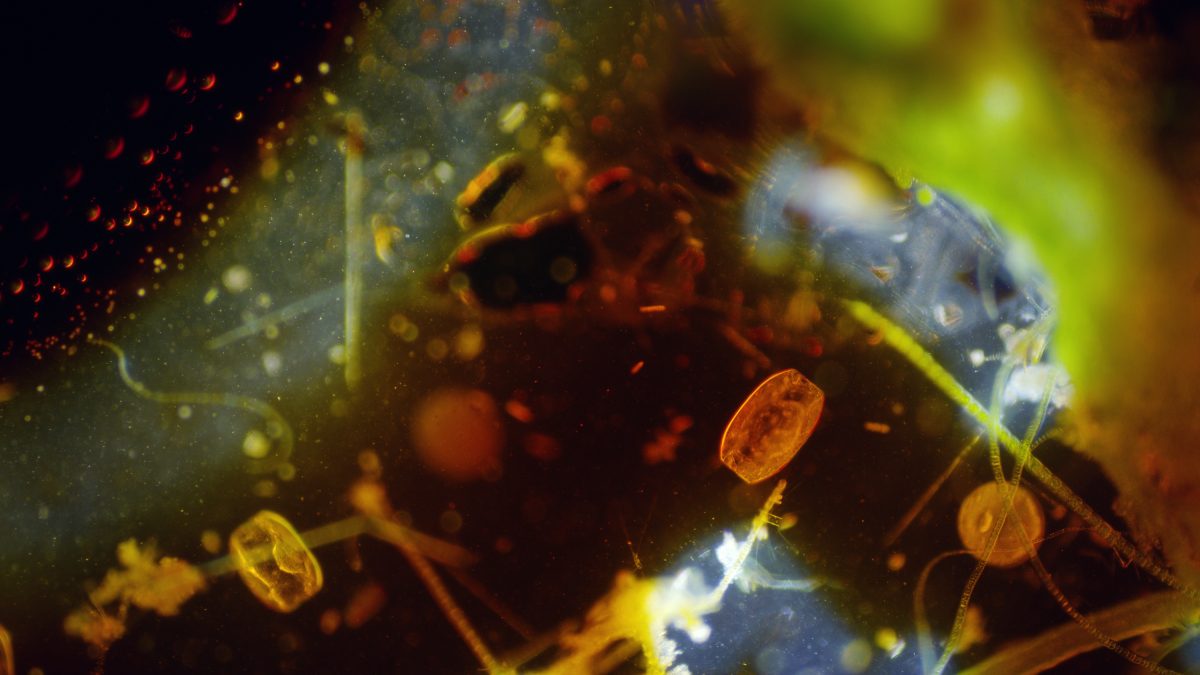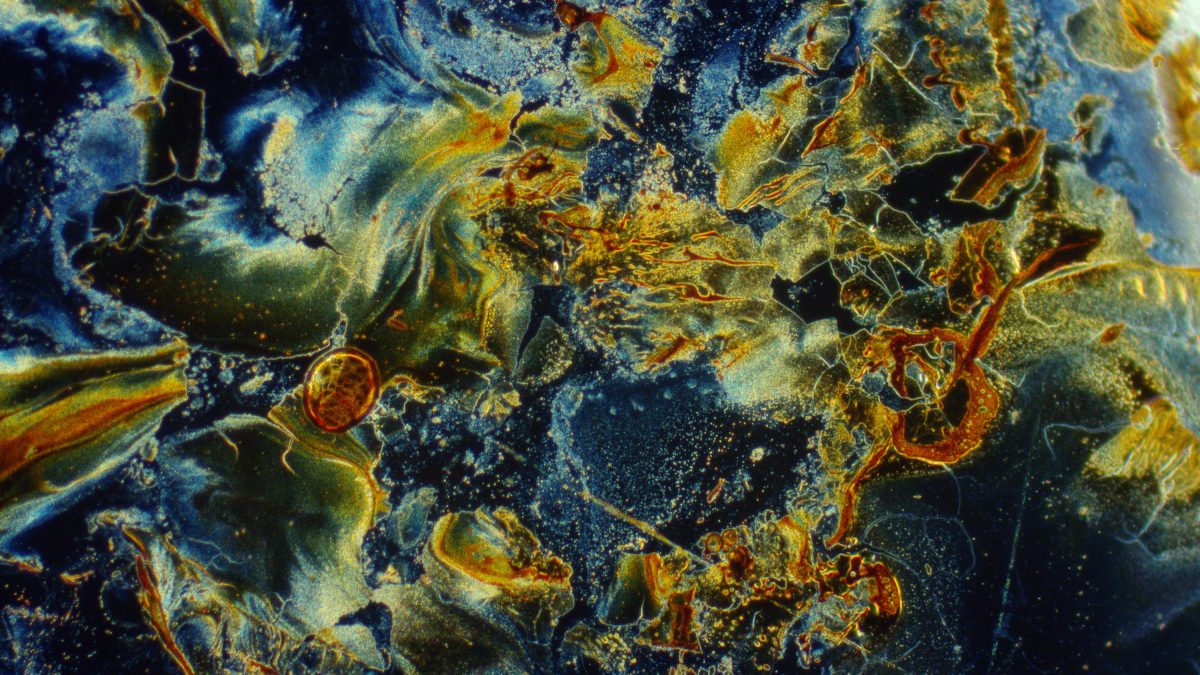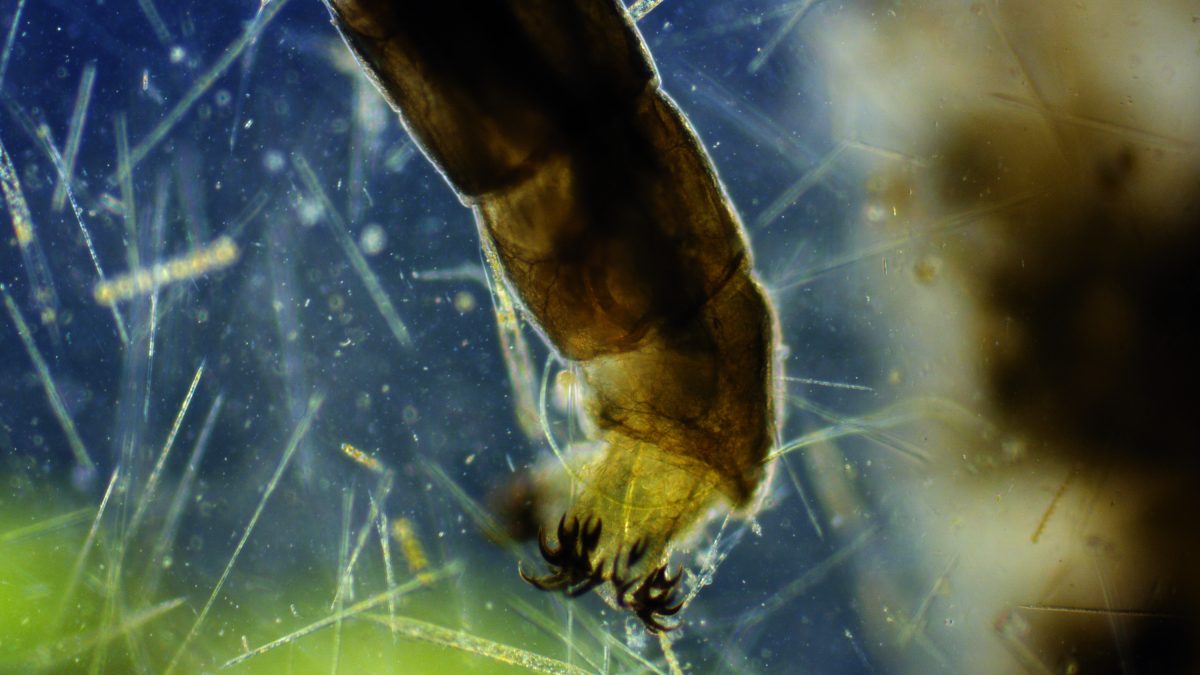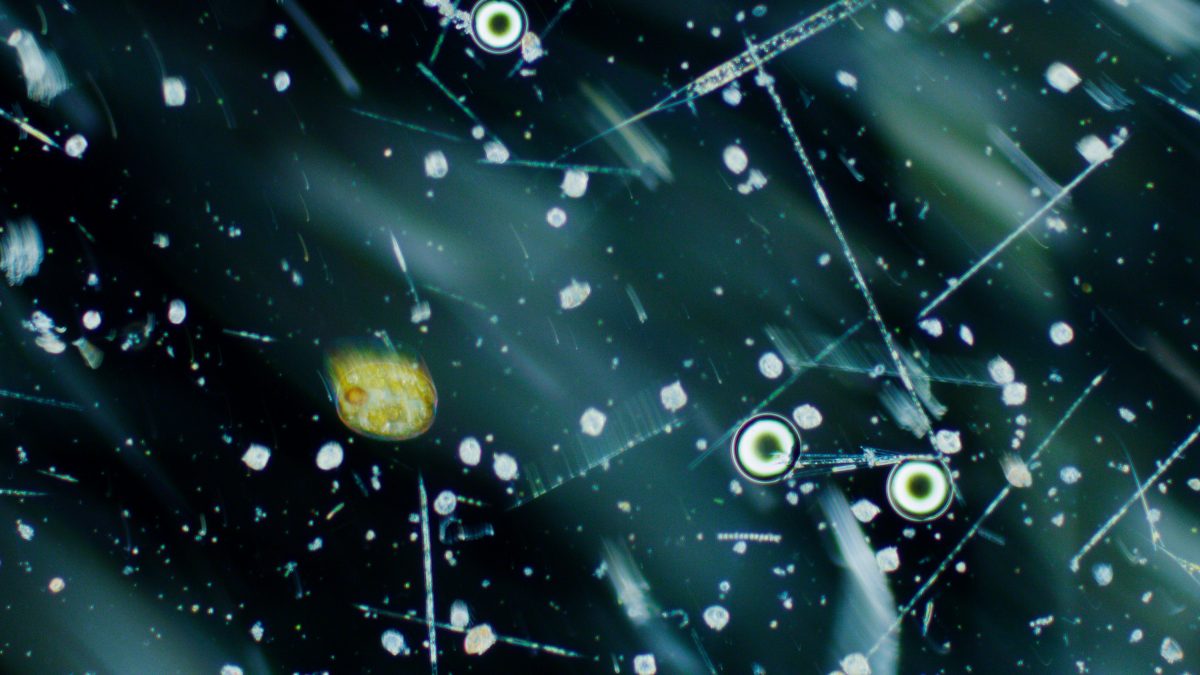Stereo lyd.
Laget på oppdrag for Munchmuseet for Munchmuseet i bevegelser, 2018
– Norsk tekst kommer –
Captured through a light microscope, Reclaiming Vision features a diverse cast of microorganisms, sampled from the brackish waters of the inner Oslo Fjord, alongside algae, cultivated at the University of Oslo. The film reveals various processes in the water that are hidden to the naked human eye. By investigating the brackish water, its inhabitants, its properties, and the traces left by human activities, the film is a reflection upon the relationship we humans have with our surroundings, especially through what we cannot see.
The film is inspired by real and historical events. The scenes have been staged by the artists, taking the presumption of reality that characterises nature documentaries into the realm of fiction film. Any resemblance to scientific research is coincidental. Starting from the assertion that looking evolved from the sea – eyes, in fact, evolved from marine algae – Reclaiming Vision takes the viewer on a journey through various ways of looking at, relating to and influencing nature.
The main characters in the film are from brackish water. Central to the film is the notion of brackish with its many, mostly negative, connotations. The conditions of brackish water are affected by natural phenomena such as the tides and seasonal variation, but are also affected by rising sea levels as a result of climate change. Therefore, brackish water plays an important role as a warning sign in the prediction of various ecological scenarios for many coastal societies worldwide. Melting ice caps might influence global ocean currents by altering the saline levels, which again will have a disastrous impact on microorganisms in the oceans that are responsible for 50–85 % of the world’s oxygen production and CO2 storage. Without these microorganisms, planet Earth would become uninhabitable for most living creatures.
The film highlights the fact that human efforts to understand the world continues to be based on detached contemplation of observable phenomena. This pervades despite scientific developments, such as the microscope, that enable us to study our invisible co-inhabitants up close. Across different disciplines, people are constantly re-evaluating our relationship with our surroundings and are trying to find new approaches that transcend binary thinking and the view that nature is just an economic resource.
While Reclaiming Vision reveals life on the smallest scale, its scope relates to global phenomena.
Teaser for the film:
Directed by: Marjolijn Dijkman & Toril Johannessen
Music by: Henry Vega
Edited by: Dieter Diependaele
Cinematography by: Aleksander Andreassen
Microscopy by: Aleksander Andreassen, Marjolijn Dijkman, Bente Edvardsen, Toril Johannessen, Luka Supraha
Scripts and Scenography by: Marjolijn Dijkman & Toril Johannessen
Scientific Consultants: Bente Edvardsen, Jan Heuschele, Jack Christopher Leo, Luka Supraha
Featuring: Acartia sp., Alexandrium ostenfeldii, Alexandrium tamarense, Ceratium furca, Ceratium tripos, Chaetoceros decipiens, Cirripedia larva, Coscinodiscus sp., Crustaceans, Dictyocha speculum, Dinophysis norvegica, Escherichia coli BL21 (DE3), Euglena sp., Eutreptiella braarudii, Green algae, Insect larva, Melosira sp., Nematodes, Nitzschia sp., Oithona sp., Proboscia alata, Protoceratium sp., Protoperidinium sp.,Prymnesium parvum, Pseudocalanus sp., Rhizosolenia hebetata, Rhodomonas salina, Rotifera, Scenedesmus sp., Skeletonema costatum, Temora sp., Thalassionema nitzschioides, Tigriopus sp.
Additional featured elements: Cleaning agents, Microneedle, Micropipette, Microplastics, Microscope, Oil, Pigments
Filming location: Microscopy lab, Section for Aquatic Biology and Toxicology, Department of Biosciences, University of Oslo, Norway
Sampling locations: Akerselva, Bispevika, Sørenga and inner Oslofjord, Norway
Algae collection: NORCCA – Norwegian Culture Collection of Algae – Oslo, Norway
Electronics: Henry Vega
Cello: Jan Willem Troost
Vocals: Els Mondelaers
Lyrics: Marjolijn Dijkman & Toril Johannessen
Mastering: Peter Solden, Dada Studios – Brussels, Belgium
Post Production Music: Sonhouse – Brussels, Belgium
Music Production supported by: ARTEk Foundation – The Hague, The Netherlands
Assistant Editing: Léo Ghysels
Post Production: The Fridge – Brussels, Belgium
Commissioned by: The Munch Museum for Munchmuseet on the Move, 2018
Curated by: Natalie Hope O’Donnell
-

Outdoor screening by the estuary of Akerselva, Oslo, September 2018, in the context of the exhibition 'Liquid Properties' for Munchmuseet on the Move. The estuary was one of the sampling locations for the film.
-

Still from Reclaiming Vision, Marjolijn Dijkman & Toril Johannessen.
-

Still from Reclaiming Vision, Marjolijn Dijkman & Toril Johannessen.
-

Still from Reclaiming Vision, Marjolijn Dijkman & Toril Johannessen.
-

Still from Reclaiming Vision, Marjolijn Dijkman & Toril Johannessen.
-

Still from Reclaiming Vision, Marjolijn Dijkman & Toril Johannessen.
-

Still from Reclaiming Vision, Marjolijn Dijkman & Toril Johannessen.
-

Still from Reclaiming Vision, Marjolijn Dijkman & Toril Johannessen.
-

Still from Reclaiming Vision, Marjolijn Dijkman & Toril Johannessen.
-

Still from Reclaiming Vision, Marjolijn Dijkman & Toril Johannessen.
-

Still from Reclaiming Vision, Marjolijn Dijkman & Toril Johannessen.
